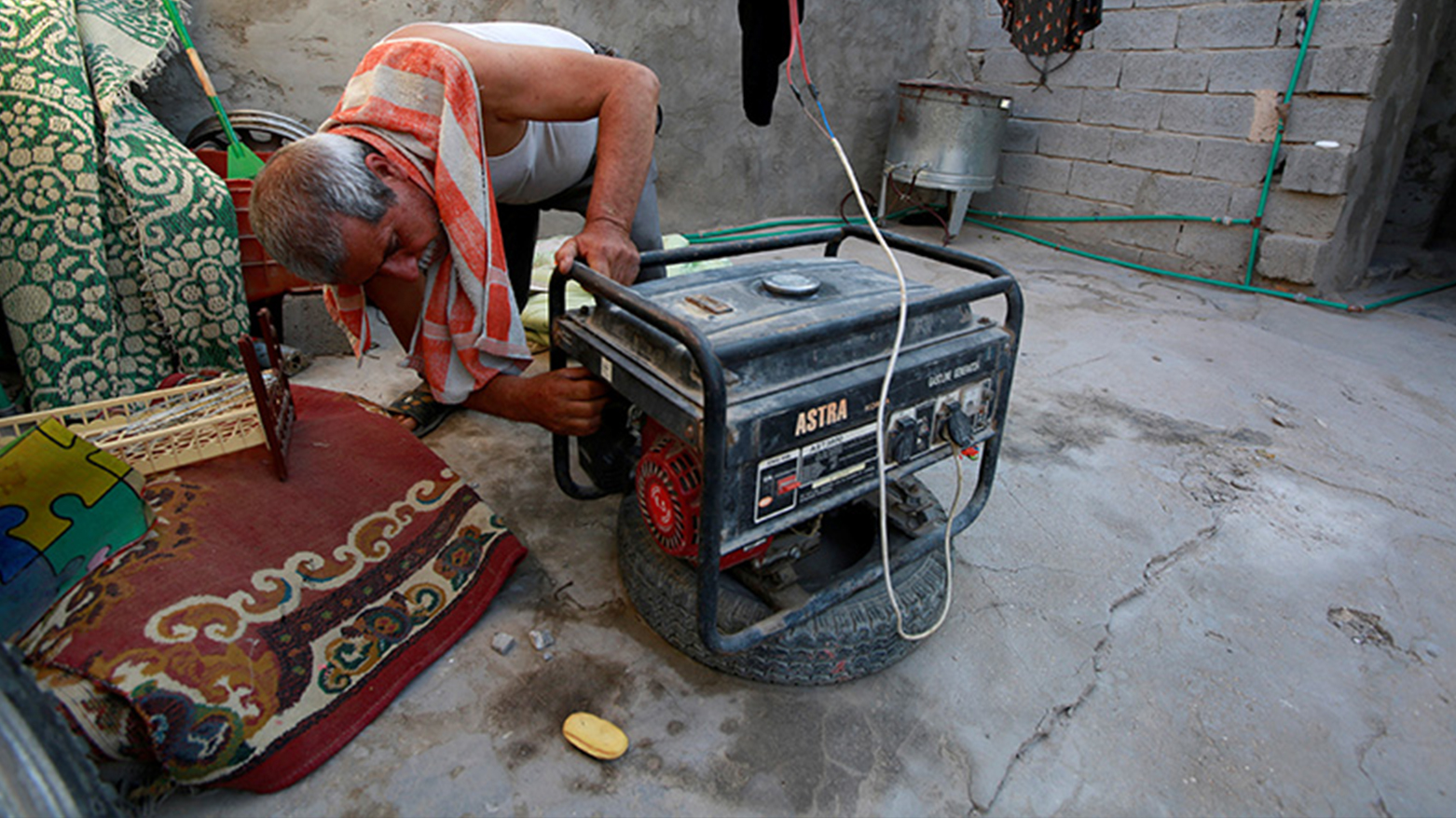Turkish Power Ship Supplies Iraq with 300 Megawatts Amid Worsening Electricity Crisis
Turkish power ship supplies Iraq with 300MW amid worsening electricity crisis, as citizens protest chronic outages. In contrast, Kurdistan’s Runaki program provides 24-hour power to more than half of its population, decommissioning thousands of generators.

ERBIL (Kurdistan24) – Iraq has begun receiving 300 megawatts of electricity from a Turkish power-generating ship docked in the south, in a bid to alleviate the country’s chronic outages during a blistering summer heatwave. The move comes as anger mounts across the nation over decades of corruption and mismanagement that have left millions without reliable power, while the Kurdistan Region advances toward full energy independence under its Runaki program.
Iraqi Ministry of Electricity spokesperson Ahmed Moussa told AFP that on Tuesday morning, a Turkish barge stationed at the port of Khor al-Zubair in Basra was officially connected to the national grid and supplied with fuel, generating 300 megawatts of electricity.
A second vessel, anchored at the port of Umm Qasr and capable of producing 290 megawatts, is expected to be linked to the grid by next week. The contracts, signed last month between Iraq’s Ministry of Electricity and BKPS, a subsidiary of Türkiye's Karpowership, will temporarily provide 590 megawatts for a 71-day period.
Despite being rich in oil resources, Iraq remains heavily dependent on electricity imports from Iran, Jordan, and Türkiye, while its dilapidated infrastructure struggles to meet soaring demand. Officials estimate that the country needs 55,000 megawatts at peak consumption to stabilize supply.
The deal comes against the backdrop of nationwide outrage after a catastrophic grid failure earlier this week plunged much of Iraq’s central and southern governorates into darkness during a deadly heatwave, with temperatures surpassing 50°C.
Citizens interviewed by Kurdistan24 correspondents across Baghdad, Basra, Diwaniyah, Maysan, and Kirkuk voiced fury at what they describe as a decades-long collapse of governance. “The electricity has passed away,” one resident lamented, noting that the power comes for five minutes before cutting out for hours.
Others accused successive governments of wasting more than $80 billion on the sector since 2003, with no tangible improvements. “The problem is rooted in corruption and mismanagement,” a Diwaniyah resident said. “No electricity, no water, no basic services. My children are suffocating in this heat, and we feel abandoned.”
Many citizens stressed that the crisis has made life “unfit to live in” and called on Prime Minister Mohammed Shia’ al-Sudani to directly witness their suffering. Protests in past years, including the 2019 Tahrir Square demonstrations, have repeatedly linked Iraq’s electricity failures to systemic corruption and political quotas.
While Baghdad turns to temporary solutions, the Kurdistan Regional Government (KRG) has pressed forward with its transformative Runaki program, launched by Prime Minister Masrour Barzani in late 2024 to permanently resolve decades of shortages.
The program has already brought uninterrupted 24-hour electricity to more than 4 million of the Kurdistan Region’s population, eliminating thousands of polluting private diesel generators and drastically cutting emissions. In Qushtapa, Erbil province.
Halabja became the first province in Iraq to achieve full uninterrupted power earlier this year, while the cities of Erbil, Sulaimani, and Duhok have also reached round-the-clock coverage ahead of schedule. Preparations are underway in the Raparin Independent Administration, where reform teams are strengthening the grid in anticipation of the program’s arrival in early 2026.
According to official data, more than 3,200 neighborhood diesel generators across the Kurdistan Region have already been decommissioned, reducing CO₂ emissions by an estimated 600,000 tons annually. The Kurdistan Region’s Environment Board confirmed that levels of harmful fine particles such as PM2.5 and PM10 have been halved, significantly improving air quality.
Beyond the environmental impact, Runaki has eased household expenses through a progressive tariff system that lowers costs for most families compared to previous generator reliance. Education has also benefited, with the Ministry of Education noting that reliable electricity now allows schools to adopt smart boards and modern teaching technologies.
Doctors, including oncology specialists, have praised the program for reducing carcinogenic emissions, predicting long-term public health improvements.
International partners have also recognized the achievement. Newly appointed U.S. Consul General Wendy Green commended the KRG’s infrastructure reforms during a recent meeting in Erbil, highlighting Runaki as a model of good governance.
As Baghdad struggles with stopgap measures like rented Turkish ships and faces growing citizen fury over systemic corruption, the Kurdistan Region is steadily moving toward full energy independence. By the end of 2026, officials say every home and business in the Region will enjoy 24-hour electricity.
Prime Minister Barzani has extended an offer of cooperation to the federal government, stating: “We are ready to assist other parts of Iraq in providing 24-hour electricity.”
The stark contrast underscores Iraq’s broader energy dilemma: while temporary contracts may provide short-term relief in Basra, sustainable reform and investment—exemplified by the Kurdistan Region’s Runaki initiative—remain the only viable path toward stability.